On the Record: GMRI’s Glenn Prickett aims to ‘help communities thrive in a warmer world’
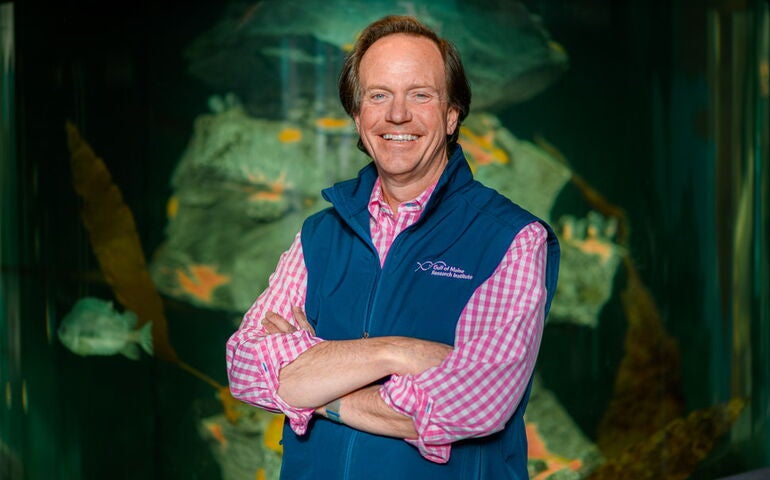 Photo / Jim Neuger
Glenn Prickett, president and CEO of the Gulf of Maine Research Institute since September 2023, spent the first six months of his job on a statewide listening tour.
Photo / Jim Neuger
Glenn Prickett, president and CEO of the Gulf of Maine Research Institute since September 2023, spent the first six months of his job on a statewide listening tour.
Seven months into Glenn Prickett’s role as president and CEO of the Gulf of Maine Research Institute, Mainebiz checked in with the Yale University alumnus to find out about his priorities and how the Portland-based nonprofit is helping Maine build its blue economy workforce.
Mainebiz: What first sparked your interest in environmental and climate issues?
Glenn Prickett: I grew up in nature. My dad was a mining engineer, my mother a nurse, and we moved a lot. Nature was the constant — hiking, camping, fishing. My mom was an environmentalist in the ’70s, so we recycled and conserved energy. In college, I studied economics and became fascinated with sustainable development: how to grow an economy while conserving the natural environment. That’s been my career ever since.
MB: These past six months on your statewide listening tour, what have you learned?
GP: As I’ve interacted with scientists, fishermen, municipal officials, educators and other community leaders, it’s clear to me that our mission is more relevant than ever — both here locally and in communities around the world facing similar challenges.
I learned more about our stakeholders’ priorities — whether that be monitoring a rapidly changing Gulf of Maine ecosystem, adapting to the impacts of climate change, growing our blue economy or educating the next generation of ocean and climate stewards.
MB: What are your three top priorities this year?
GP: We’re focused on our key areas of impact as they relate to our mission: climate change, healthy ocean ecosystems, sustainable seafood and a thriving blue economy. Internal priorities include onboarding a new chief operating officer; launching a new strategic planning process; and bringing diversity, equity, inclusion and justice to the center of our work.
MB: What are the expected impacts of the warming Gulf of Maine, and what will sea level rise and worsening storm surges look like for coastal communities?
GP: Since our scientists first identified the Gulf of Maine as one of the world’s most rapidly warming ecosystems, we’ve turned our attention to the question of, ‘OK, what do we do about it?’ We know that climate change is going to mean big changes for coastal communities.
The distributions of key commercial species will continue to shift, sea levels will continue to rise [and] storms will get stronger. We want to help communities continue to thrive in a warmer world. That’s why we launched our Climate Center five years ago and are now delivering a wide range of climate services in over 30 coastal communities throughout the Gulf of Maine.
MB: How are you helping Maine attract more young people to the blue economy workforce?
GP: Workforce development is central to our work. Whether we’re talking about fifth graders grappling with ocean data in our lab, our first-in-the-nation aquaculture apprenticeship program, or blue-tech innovators trying to attract investment to grow their businesses, we’re making critical short- and long-term investments in the future of our blue economy workforce.
MB: Out of your joint effort with restaurants to promote sustainable seafood, what culinary innovations stand out?
GP: I think the most important evolution is that both restaurants and their diners are starting to focus on what’s local, rather than keying in on just a few key species. You may not have tried hake, Acadian redfish or whiting before — but if it comes from the Gulf of Maine, you can feel good about eating it.
A better understanding of the ecological, economic and climate benefits of eating local is giving people the confidence to try something new.
MB: As a nonprofit dependent on a mix of funding sources, what are some of the challenges you face?
GP: Funding sources are finite, so our biggest organizational challenge right now is prioritization. We need to focus our growth in the areas that will create the most impact. A unified focus on a few big things to harness the best this organization has to offer, and to attract the kind of philanthropy we need to scale.
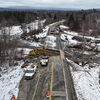

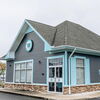

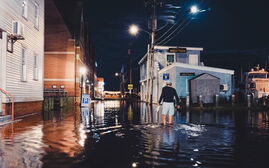
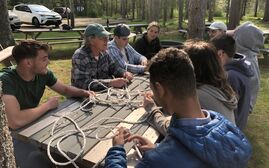
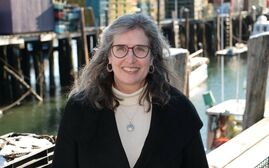
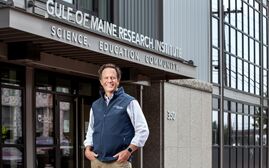




0 Comments